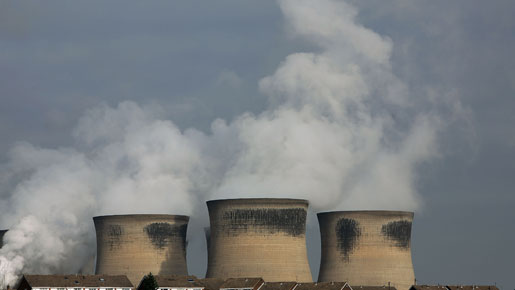
A report which International Institute for Environment and Development (IIED) commissioned from the Carbon Consultancy, will be launched at the travel sector’s annual World Travel Market exhibition in London to mark World Responsible Tourism Day (14 November).
It says that all who benefit from aviation have a collective responsibility for reducing emissions, highlights avoidable greenhouse-gas emissions, and recommends ways to reduce the sector’s contribution to climate change quickly and easily.
Topping the list is a call for real and standardised reporting of airline emissions and eco-labelling of flights.
“The statistics surrounding aviation emissions are confusing for consumers because they are based upon a wide variety of source material,” says the report’s author Hugo Kimber of the Carbon Consultancy. “Even individual flight emissions calculations can vary by as much as 300 percent for the same flight depending on the methods used.”
The report calls for standard fuel-use reporting by airlines to allow the creation of a flight-labelling scheme. This would help consumers to choose routes and airlines that emit less, and which in turn would encourage airlines to adopt more efficient technology and aircraft deployment.
The report adds that more than 20 percent of aviation capacity flies empty, that indirect flights can emit up to 29 percent more carbon dioxide than direct ones, and that the use of aircraft by individual airlines can make a big difference to emissions. But passengers are left in the dark about these figures and so can’t exercise consumer power to reduce emissions.
“Flying produces considerable global benefits, especially for developing countries but at an environmental cost which it must be assessed against by consumers and policymakers,” adds Kimber.
One quick fix would be to reduce the baggage allowance. A 5-kilogram reduction in baggage allowance on the main short haul route from London to Spain would reduce carbon dioxide emissions by 54,400 to 68,000 tonnes – the higher value equating to 2,950 flights from London to Malaga.
The report calls for emissions from aviation to be included in the European carbon-trading system with an interim efficiency-based eco-tax to reflect the cost of carbon. It urges European governments to adopt the proposed Single European Sky – a regional air traffic control system that would eliminate the annual 12 million tonnes of needless carbon dioxide emissions created by national systems.
It says airport expansion should only take place if demand for flying is still rising after passengers and airlines start to bear its environmental cost in line with recommendations already made to the UK government.
“Aviation brings benefits to governments, the public, business and the airlines themselves but nobody is covering the environmental costs,” says Dilys Roe, the senior researcher at IIED who commissioned the study. She points out that air travel is extremely important to the economies of poor countries, both in terms of bringing tourist revenue and exporting fresh produce, so it is key that emission reduction policies do not harm the poor.

